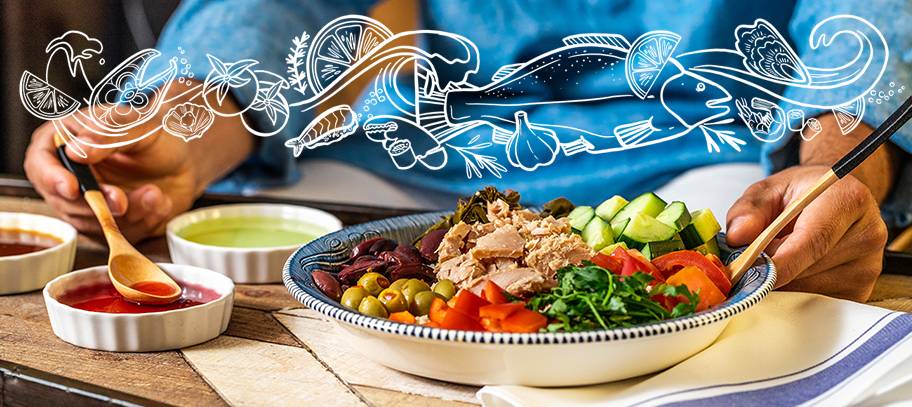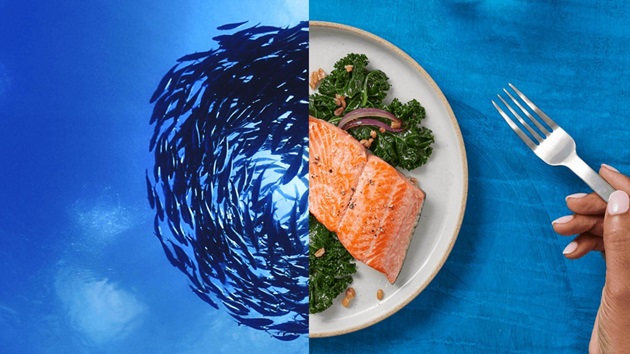Choosing fish that is a win-win for people and planet means shopping for sustainable seafood - but what does “sustainable” really mean? Seafood can be considered sustainable if it keeps the marine environment intact, comes from a healthy population of fish, and is caught with oversight from regional and national management bodies. In short – it means we can all keep enjoying seafood for generations to come.
But not all (sustainable) seafood is created equal. Knowing what to look for when you’re shopping for your next fish dish is important – you want to make sure that sustainability claims are reliable and that you can trust the product. In fact, 64% of Americans believe retailers’ and brands’ claims about sustainability and the environment need to be clearly labeled by an independent organization (GlobeScan 2020), like the MSC.
Why Now?
With everything going on in most Americans' lives, mealtime should not be a source of additional stress. That’s why people around the country are filling their pantries and plates with seafood that’s loaded with benefits – nutritional benefits as well as environmental benefits. In a recent study, American shoppers shared that they are prioritizing products that align with their values (GlobeScan 2020) – that means buying seafood that’s good for them and good for the planet.
Prioritizing sustainable seafood is more important than ever. A recent report by the UN Food and Agriculture Organization found that one-third of fisheries worldwide are unsustainably managed, which can ultimately lead to overfishing, increased bycatch, and other negative impacts ( SOFIA 2020). That’s why Americans rank ocean health and the decline of fish populations as their third highest environmental concern (GlobeScan 2020).
However, seafood that is certified sustainable and carries the MSC blue fish logo is helping to drive change and grow the availability of seafood that is good for people and the planet. When you see the MSC blue fish label on seafood products, you can trust that it is wild-caught from the ocean, lakes, or rivers, doesn’t threaten fish population’s health, and is traceable along every step of the supply chain - minimizing any risk of seafood fraud or mislabeling.
One third of Americans report to be eating more seafood than they were five years ago (GlobeScan 2020). It is vital that this uptick does not add pressure to wild fish stocks. With increased consumption comes increased responsibility - eating sustainably caught options helps to keep fish populations healthy and available for future generations of seafood lovers and for overall ocean health.
Next time you’re shopping for seafood, knowing what to trust is simple - look for the MSC blue fish so you can feel good about your purchase. Here are five more great reasons to check for the MSC blue fish on seafood products:
A balanced diet that includes certified sustainable seafood is a win-win for people and planet.
Seafood can help reduce stress and anxiety, improve sleep and improve overall wellness.
Cooking seafood is simple and quick, in many cases you can even cook from frozen!
There are so many varieties at the grocery store no matter your budget or taste preferences – from fish sticks to filets, canned tuna and clams. Sustainable seafood can even be found in fish oil supplements and pet food. (We even made a grocery store guide to help you find MSC certified options on your next shopping trip!)
You’re helping to create change! When you buy MSC certified seafood, you’re creating an incentive for more fisheries, retailers and restaurants to produce and sell certified sustainable seafood.
There is no better time than now to add more sustainable seafood to your diet. For your health, and for the health of the ocean.



